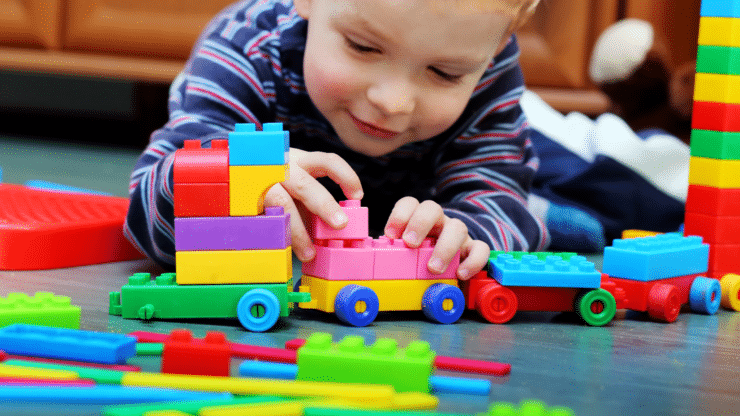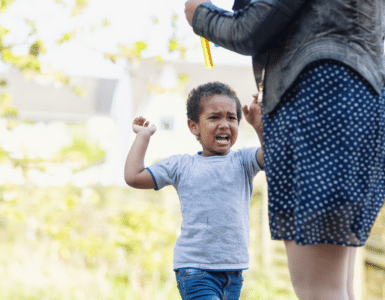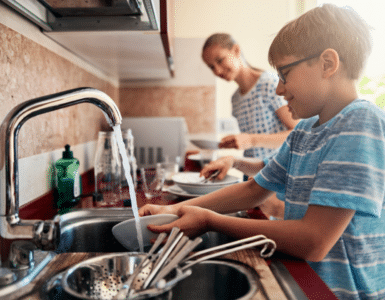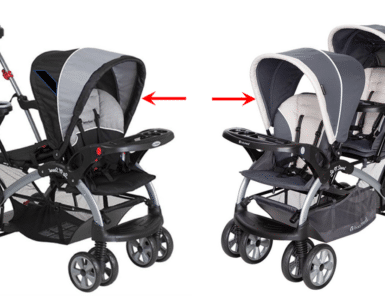There are so many toys coming out all the time with lots of bells and whistles that promise to turn your child into the next Einstein.
Even with all the technology available to us now, the toys that are best for toddlers are classics, with most of the toys on this list being popular since the early 1800s and even earlier!
1) Blocks
Toddlers can have so much fun with blocks. The limitless play options mean your toddler won’t get sick of playing with them, and it can boost their creativity and imagination.
Wooden blocks are great for stacking and making intricate cityscapes while helping your child develop their spatial awareness and fine motor skills. Large, Lego-style building bricks help toddlers improve the dexterity of their hands and help them develop their problem-solving skills as they fit the blocks together.
2) Dolls & Toy People
No matter what gender your child is, they can have a lot of fun playing with dolls and pretend people. Toddlers learn by copying what other people do, so when they have dolls, they can reenact actions and mimic the people they see around them. This helps them develop their language and social skills as well as gives them lots of options for playing and using their imagination.
3) Toy Animals
Toddlers love stuffed animals and get really excited about them because they’re soft and cuddly. Stuffed toys and other toy animals are a fun way for your toddler to learn about the animal kingdom while developing their language and cognitive skills.
ALSO: Parenting Style — Are You Authoritative, Permissive, or Authoritarian?
Stuffed animals are also very comforting for kids and provide a sense of security and stability. That’s why so many kids get so attached to one particular stuffed toy and will want to take it around with them wherever they go.
4) Play Kitchen
Play kitchens are always a hit with toddlers. At home, they see a lot of interesting things happening in the kitchen and know that’s where all the yummy food is. Toddlers are fascinated by cooking and love to pretend to cook with toy dishes. This is great for their balance, spatial awareness, and fine motor skills.
5) Role-playing Toys & Dress-up
Dressing up as a firefighter or a tiger, and pretending with role-playing toys like cash registers and doctor kits, helps stimulate your child’s imagination and also can also teach them empathy because they’re putting themselves in other people’s shoes.
Role-playing also helps toddlers develop their language skills as well are their emotional, social, and cognitive development.
6) Musical Instruments
As loud and annoying as it can be to give your toddler a musical instrument, it’s really important for their development. Learning to play a musical instrument can improve a toddler’s cognitive abilities, such as memory, attention, and problem-solving skills.
Even if they don’t become the next Beethoven, they’ll still have a lot of fun banging on a drum or xylophone while listening to their favorite songs, or even making up their own songs.
Percussion instruments like drums, tambourines, shakers, and maracas are best for toddlers because they’re easy to hold and play, and harder for kids to break!
7) Balls
Going outside and getting lots of physical activity is essential for toddler development. Kicking, throwing, catching, and chasing balls help your toddler improve their balance, dexterity, hand-eye coordination, and gross motor skills.
All of these toys are tried and true classics. There’s a reason why play-based learning approaches like Reggio Emilia, Montessori, and Waldorf have these essential toys in their learning spaces and recommend them to parents.
Simple toys are best for toddlers because they’re essential for physical and cognitive development. They also allow limitless play opportunities, stimulate your child’s imagination, and keep your little one entertained for extended periods.










Add comment